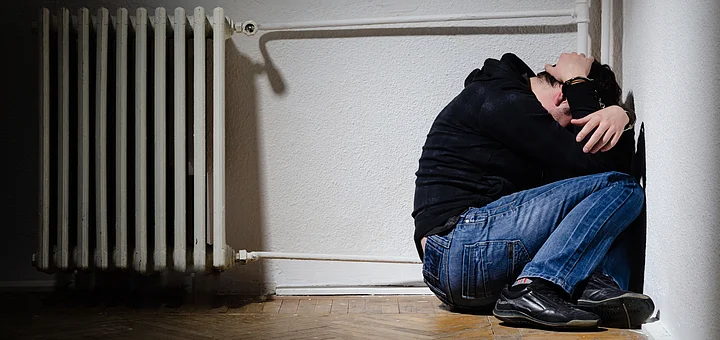(This article was first published on 2 May 2015. It is being reposted from The Quint’s archives in light of the Centre’s submission to the Delhi high court, which argues that marital rape is not a crime.)
Men, Victims of Marital Rape?
It’s not a myth. It’s most definitely not a joke. The jingoistic debate about the need for a marital rape law is, not surprisingly, centred around the woman as the victim.
The Quint spoke to Amit (name changed), a 35-year old customer service professional with a BPO. His job requires him to do gruelling night shifts that disrupt his body clock. But his wife, he says, could not care less.
I would come home tired and without understanding my needs, she used to force me to have sex. I tried speaking to her, but she only seemed to care about her own needs and desires. It was impossible to satisfy her. It didn’t matter if I was tired, came home at midnight or simply not in the mood. She blackmailed me, threatened to leave me if I did not comply. It was literally, like being raped.
Separated from his wife, Amit is contemplating getting a divorce from his wife of 7 years and is against the idea of a marital rape law, because he’s certain it would not protect him.
Amit has good reason to oppose it. In 2013, convictions were secured in only 16% of the 1.18 lakh cases registered under the contentious Section 498 of the IPC which deals with dowry harassment. The low conviction rate indicates a misuse of the law, a point noted by the Supreme Court last year.
The fact that Section 498-A is a cognizable and non-bailable offence has lent it a dubious place of pride amongst the provisions that are used as weapons rather than shield by disgruntled wives.
– Supreme Court of India, July 2014
Are We Ready For Gender Neutral Laws?
Last week the Centre announced its intent to amend the Anti-Dowry Act which men’s rights activists hope will be the first step in making the law gender-neutral. One of them is Bangalore-based Kumar Jahgirdar who says he knows of many men who suffer marital rape in silence for fear of being ridiculed.
Some of them are forced to take viagra, indulge in forceful sex, because their partners challenge their manhood, putting undue pressure on them. Like the Domestic Violence Act, a marital rape law can be misused, invoked to extort money from many innocent husbands.
– Kumar Jahgirdar, President, Children’s Rights Initiative for Shared Parenting (CRISP)
Jahgirdar has no doubt that a marital rape law, like the Anti-Dowry Act will be misused. He however admits that marital rape is a reality in India, but argues that existing provisions in the Domestic Violence Act are enough to deal with it.
Potential For Misuse
Marital rape is difficult, practically impossible to prove or disprove. There are several questions that remain unanswered by those demanding a new law to deal specifically with marital rape.
1. Is the Court to rely solely on the wife’s testimony?
2. Is it fair to consider the husband guilty until proven innocent?
3. Will the onus lie on the husband to prove his innocence?
4. Is it possible for a Court to arrive at a judgement based on “hearsay”?
5. Is the exercise of drafting a new law justified considering there will inevitably be a dismal conviction rate?
6. Is there no way to deal with marital rape by making amendments to existing laws?
Failure to answer the above questions is perhaps part of the reason why the government rejected a UN-committee recommendation to criminalise marital rape.
It is considered that the concept of marital rape, as understood internationally, cannot be suitably applied in the Indian context due to various factors, including level of education, illiteracy, poverty, myriad social customs and values, religious beliefs, mindset of the society to treat marriage as a sacrament.
– Haribhai Parthibhai Chaudhary, MoS, Home
But, does this “sacred bond” then give one the license to subject their partner to sexual violence? Absolutely not. Is a new law the answer then? Before we form an opinion, we women must remember that we cannot choose when to be the “weaker” sex.
